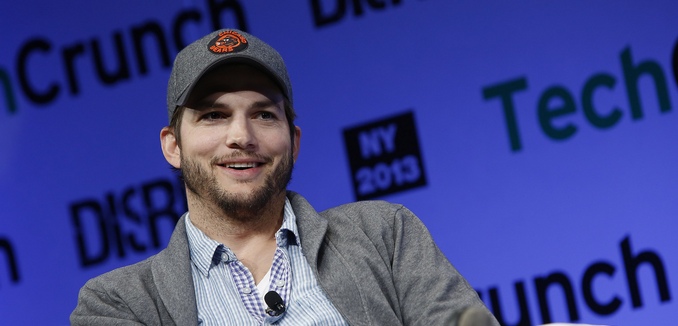Celebrity endorsements are a big boon for brands. Just ask SodaStream, the Israeli company touted by Hollywood beauty Scarlett Johansson. Ask HOT, the Israeli telecom for which Portuguese soccer star Cristiano Ronaldo filmed a TV commercial.
But other stars support Israeli startups with their dollars rather than their faces.
Today’s celebs no longer look down on techies, explained Gil Eyal, the founder of the marketing platform HyPR Brands.
“It’s kind of cool to be a nerd now, and Israeli founders are a unique type of nerd because they have chutzpah; they’ll walk up to Leonardo DiCaprio and ask, ‘Do you want to invest in my startup?’ Celebrities in general are the same way, used to getting what they want,” Eyal told ISRAEL21c.
Furthermore, many stars feel sidelined as companies like Twitter and YouTube made big bucks on their backs. “Suddenly they realized they can bring enormous value by virtue of giving their attention, and startups crave attention,” said Eyal, who is experienced in attracting celebrity endorsements and investments for his clients.
“It’s like a Cinderella story when suddenly someone super powerful comes in and says, ‘I recognize your potential.’ Nothing is more lonely than being a founder, and suddenly the coolest kid in school wants to hang out. And since Israeli tech is so hot, it makes sense that celebrities gravitate to where success has been.”
Founded in 2013, Fundbox is the newest Israeli startup with star backing. Offering a cash-flow optimization system for small businesses, the company has raised $112.5 million from investors including Amazon’s Jeff Bezos and actor Ashton Kutcher. Fundbox has offices in Tel Aviv and San Francisco.
Moovit, the public transit app serving hundreds of cities worldwide, has been heavily supported by Sound Ventures, a VC firm founded by Kutcher with Israel native Guy Oseary, the manager for Madonna and U2.
Sound Ventures’ most recent investment, in late 2015, helped Ness Ziona-based Moovit move into the Chinese and Indian markets. “Moovit’s mission to make public transport a first choice for people across the globe, cutting back on individual car usage and making cities smarter, sits well with our vision to invest in game changers,” Kutcher told Business Insider.
Powermat got a jolt of juice from hip-hop legend Jay Z in 2012. He signed on as the face and voice of the venture, taking an equity stake in the company and embedding wireless Powermat Charging Spots in the tables at his 40/40 Club NYC. Powermat is installed in more than 1,400 locations, mostly in North America, providing 150 million phone-charging minutes last year.
Interactive piano-teaching app Tonara, crowd-styling app Wishi and the artificial intelligence company Shellanoo Group each got an investment from music producer Will.i.am, formerly of the Black Eyed Peas. Will.i.am also tapped Israeli talent to develop Puls, a beta prototype for his “smart cuff” wearable, Dial, introduced in early 2016.
PlaySight of Kfar Saba attracted funding from tennis greats Novak Djokovic and Billie Jean King for its SmartCourt analytics technology, designed to measure and record playing performance via HD cameras, cloud software, and social-media sharing capabilities. In use across North America and Europe, SmartCourt works with net sports as well as basketball, handball, squash, martial arts, soccer, hockey, wrestling, dancing, and gymnastics.
MyCheck—a mobile application that enables restaurateurs to let patrons order and pay from their smartphone—received an early investment from Israeli supermodel Bar Refaeli. She also appeared in a domestic 2012 ad for MyCheck, which now has offices in Tel Aviv, Sao Paulo, New York and London.
Mobli illustrates the stark truth that startups are risky and even star power cannot guarantee success. Moshe Hogeg’s 2010 venture garnered millions from the likes of Serena Williams, Leonardo DiCaprio, Toby Maguire, Lance Armstrong, and Mexican billionaire Carlos Slim, the world’s second-richest man.
Yet the social mobile photo- and video-sharing platform, which counted some 20 million users, was eclipsed by Instagram and is struggling to stay afloat.
(via Israel21c)
[Photo: TechCrunch / Flickr ]




